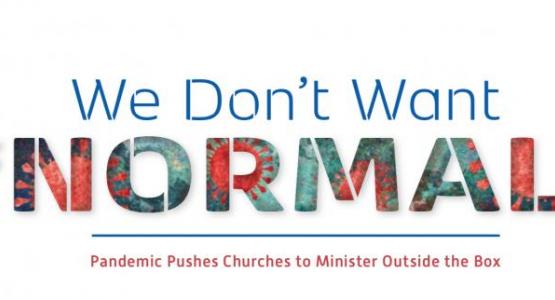
We Don't Want 'Normal'
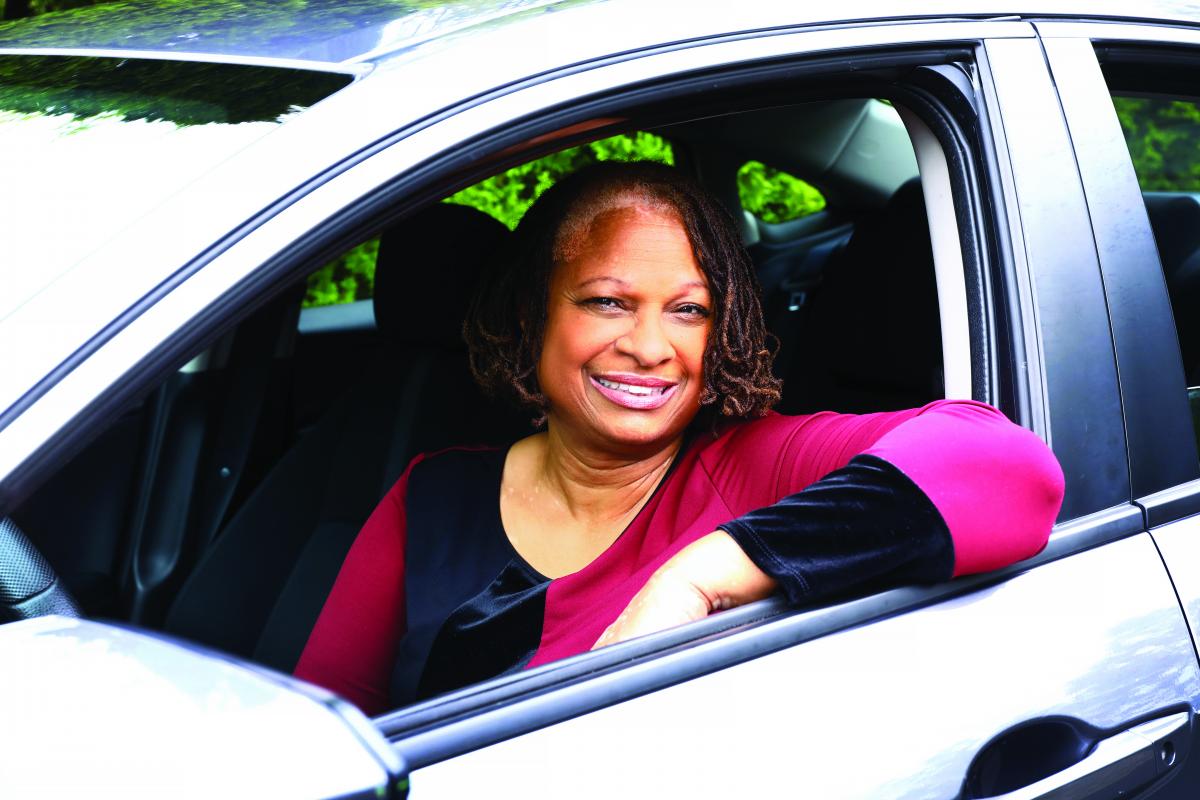 Story by Michele Joseph
Story by Michele Joseph
Driving on a Sabbath afternoon to escape the house she’d been in all week, Ruth-Ann Thompson had a moment of inspiration. The Columbus, Ohio, resident realized she wasn’t far from the home of fellow church members. She pulled over and sent them a text.
“I’m going to be pulling up in your driveway in about two minutes,” she texted. “I’m going to pray for you and your family, and be gone.”
When she pulled into the driveway, the family turned on their porch light, acknowledging her arrival.
Thompson called a friend in Huntsville, Ala., who was recovering from major surgery, and asked if she would join her in prayer.
Both woman had a revelation: they realized prayer ministry was still an option, even from home. Thompson says, “This felt like worship to me—intentional prayer on behalf of someone else.”
The former pastor’s wife doesn’t consider herself a prayer warrior, but her “drive-by” prayers, as she calls her stops, have been “beneficial for people who have been prayed for,” as well as for herself.
“It has given me a sense of purpose,” Thompson says.
Week after week she has prayed for neighbors, church members and random people on the street. The pandemic has also taught her lessons. The first Sabbath her church—Allegheny West Conference’s Ephesus church in Columbus—closed their building, Thompson realized just how restful Sabbath could be. “I just slept,” she says.
She understands that what she needs now, more than ever, and what we all may need, is not just another sermon, but fortification. During her personal devotions, she read 1 Kings 19, the story of the prophet Elijah who ran from Jezebel and was fed by an angel.
“The angel gave him something that was going to sustain him for the journey. Lord, that’s what I need during this pandemic,” she says.
She believes the prayers can help with that fortification, and plans to continue.
The shift in Thompson’s time and reflections on Sabbath are mirrored around the Columbia Union Conference. As worship services have switched to online spaces or videoconferencing on platforms like Zoom, ministries are reaching a wider range of people.
“I think people are certainly more aware of their need and the needs of others,” says Miranda Alvarez, a member of the L.E.G.I.T. church in Bethlehem, part of Pennsylvania Conference’s Simple Church Network, who met via Zoom for several months. “Church members have been more intentional than ever about inviting friends and family too.”
She adds, “I think it comes down to knowing where hope comes from when the world has failed us. Also, I’ll add that I think people have been stripped of their distractions. Now that events are canceled and people are unemployed, there aren’t as many things fighting for our time and attention on Sabbath.”
It has also provided fertile ground for creativity.
Opportunity for Reinvention
“Moments of crisis offer opportunities for reinvention,” says Frank Bondurant, Columbia Union’s vice president for Ministries Development. “This crisis, which threatened to interrupt and possibly derail mission, has actually provided fertile ground for how we can do church different and reach out to people differently. It has actually provided new birth for how we do ministry.”
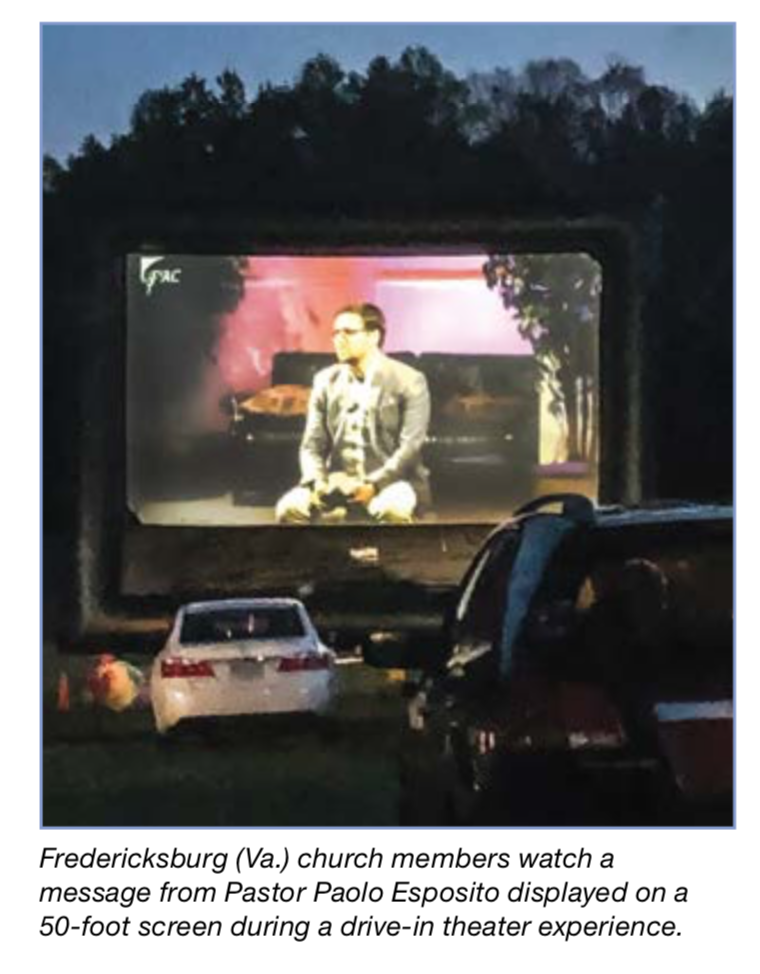 That couldn’t be more true for Pastor Paolo Esposito and the members at Potomac Conference’s Fredericksburg and Orange churches in Virginia. Esposito was installed as the district pastor on February 29 of this year. Two weeks later, the church buildings were closed. His usual plans of meeting with church leaders, assessing their needs and getting to know people immediately shifted to working on how to minister in their present situation.
That couldn’t be more true for Pastor Paolo Esposito and the members at Potomac Conference’s Fredericksburg and Orange churches in Virginia. Esposito was installed as the district pastor on February 29 of this year. Two weeks later, the church buildings were closed. His usual plans of meeting with church leaders, assessing their needs and getting to know people immediately shifted to working on how to minister in their present situation.
It led to the Fredericksburg church hosting a drive-in theater experience, instead of offering their usual in-church Easter program. They erected a 50-foot screen and showed pre-recorded skits and songs created by the church’s youth, Esposito says. A live host narrated the program from the sanctuary, and people tuned in on an FM station to hear the service as they watched the screen.
The program drew 60 cars with multiple occupants, Esposito says.
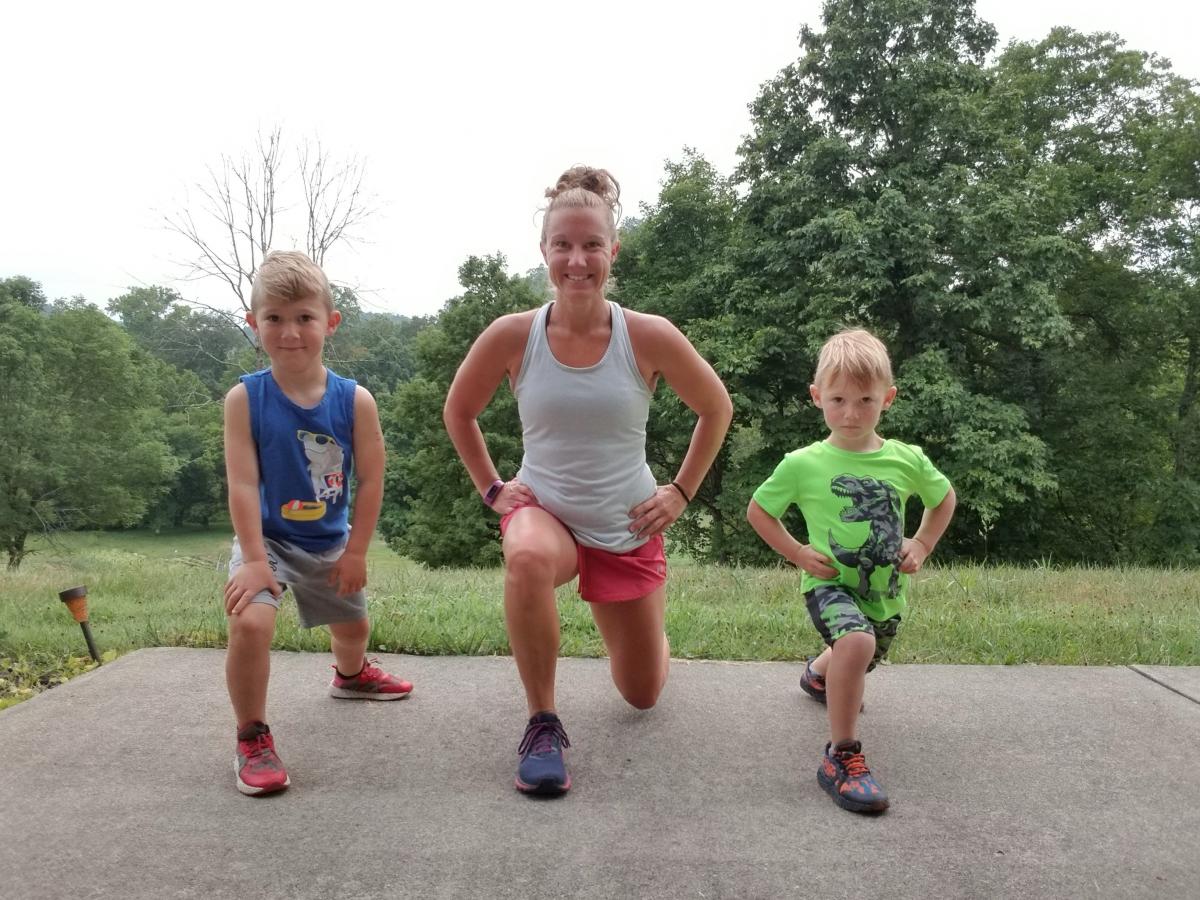 The church also offers a live fitness class Sundays, Tuesdays and Thursdays on its Facebook page, thanks to member Keri Wagner (pictured with Lukas and Jakob). Wagner, a physical therapist, creates workouts that beginners and experts can follow, and, by occasionally incorporating her sons, illustrates that exercise can be a family affair. The videos have drawn church members, friends, her clients from work and even her 84-year-old grandmother who lives in Texas, says Wagner. At each exercise event, she shares workout tips and Bible verses.
The church also offers a live fitness class Sundays, Tuesdays and Thursdays on its Facebook page, thanks to member Keri Wagner (pictured with Lukas and Jakob). Wagner, a physical therapist, creates workouts that beginners and experts can follow, and, by occasionally incorporating her sons, illustrates that exercise can be a family affair. The videos have drawn church members, friends, her clients from work and even her 84-year-old grandmother who lives in Texas, says Wagner. At each exercise event, she shares workout tips and Bible verses.
Wagner plans to continue the online workouts into the fall. “Even with opening up, that doesn’t mean life is back to normal. ... People still don’t feel safe going back to the gym,” she says, adding that the ministry could carry on. Even if “you aren’t talking about Christ, if you are acting like Christ ... people see beyond your words, and it can bring them to Christ as well,” she adds.
Strengthening Community Bonds
Several churches have further turned their focus to community and connection needs. Pastor Diego Boquer coordinates the Chesapeake Conference’s initiative at the Baltimore-White Marsh church in Maryland to deliver personal protective equipment (PPE) to Baltimore organizations and a local daycare. Church leaders are also intentionally reaching out to other members on a daily basis, making sure their needs are met. During this time, the church also progressively shifted to further meeting the needs of the community.
This “needs to continue after this quarantine. How it will look like, I don’t know, but we need to increase a sense of community in our church,” says Boquer, pastor of Baltimore-White Marsh.
Potomac Conference’s Seabrook church, already active in the local community, has amplified their efforts and has reached out to members and previous atte ndees by posting a general form on their website letting people know “we’re in this together, and we’re going to do what we can,” says Discipleship Pastor Jimmy Munoz. As a result, people have shared job connections and have found financial support for several families. “We are not naive to the fact that there is a huge need that we are not equipped to take on,” he says. “We are encouraging our church to provide an offering that we can use to support the good work being organized by local organizations.” (Seabrook members are pictured marching after the death of George Floyd. Image by Peter A. Roberts)
ndees by posting a general form on their website letting people know “we’re in this together, and we’re going to do what we can,” says Discipleship Pastor Jimmy Munoz. As a result, people have shared job connections and have found financial support for several families. “We are not naive to the fact that there is a huge need that we are not equipped to take on,” he says. “We are encouraging our church to provide an offering that we can use to support the good work being organized by local organizations.” (Seabrook members are pictured marching after the death of George Floyd. Image by Peter A. Roberts)
Digging Deeper Digitally
Pastor Steven Manoukian, pastor of Ohio Conference’s Athens, Zanesville and Newark churches, and former president of the Gulf Field of Seventh-day Adventists, based about 50 minutes north of Dubai, now believes we need to understand we are not who we think we are.
“The West considers itself a very individualistic society ... but this pandemic has proven the exact opposite,” he says. “People want to interact; people want to socialize. They just can’t help themselves. ... So the question is, ‘How do we move this from the need for socializing to help it become an opportunity for evangelism in ministry?’”
He says he hopes the church in the United States learns a valuable lesson during this time.
“I thin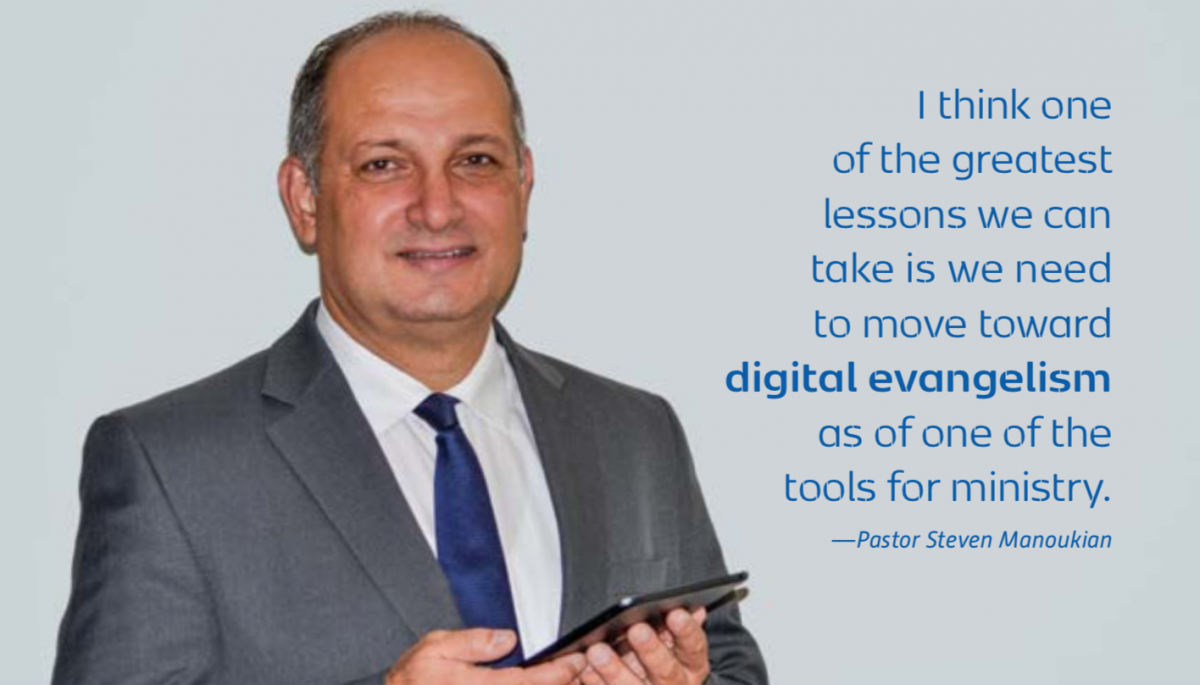 k one of the greatest lessons we can take is we need to move toward digital evangelism ... as one of the tools for ministry,” he adds.
k one of the greatest lessons we can take is we need to move toward digital evangelism ... as one of the tools for ministry,” he adds.
Many Columbia Union Conference churches moved their ministries online to offer Bible studies, prayer meetings, evangelistic series and Sabbath School and church services online and on social media. Many will continue to provide at least some of these online services once the pandemic is over, and many are considering continuing to hold online board and prayer meetings as well. (For resources to expand your online ministry, visit columbiaunionvisitor.com/onlinetools.)
Several ministries are trying to help in this regard. Among other initiatives, Adventist World Radio started offering cell phone evangelism training, the Seventh-day Adventist World Church launched a campaign to recruit digital missionaries and Pacific Press Publishing Association is moving more toward electronic publishing and exploring e-subscriptions to magazines.
Back to Normal
Rubén Ramos, Columbia Union vice president for Multilingual Ministries, says ministry during the pandemic has changed in a “dramatic way.” He adds, “We have been using media for not only worship, but also for all the activities of the church, and also for evangelism. And I think it has been a blessing because for so long, we members have focused on what’s happening inside the building, between four walls.”
He continues, “We are reaching out to the friends sending links, doing Bible studies electronically through social media, and we are trying to encourage the mem- bers to be close to their friends using WhatsApp text, YouTube, Facebook, etc. ... It has been a blessing, and I hope that this way of doing ministry will never stop.”
Esposito also hopes his church and others will continue this outward facing form of sharing the gospel and will move forward to being more missional.
“One of my biggest fears is that we are so eager to get back to normal,” he says.
He believes small churches may be uniquely suited to this new normal just as small groups may be less intimidating to people than large gatherings.
Esposito adds, “We can see something new being birthed in our church. If we could have that moment of revelation, I think we can really come on the other side of this, not ready to go back to the way things were, but ready to be the church Jesus needs it to be.”

Read these articles from the September/October 2020 Visitor:
- Editorial: Addressing the Racism Virus
- Feature: We Don't Want Normal
- Adventist Educators Ready to Tackle Unique School Year
- Educated by the Coronavirus
- Donde Estamos? Racismo el la Iglesia
- Graduates Honored With Caring Heart Award
- Où sommes-nous? Le racisme dans l'église?
- Where are We? Racism in the Church

Add new comment